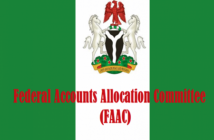The Supreme Court has ruled in favour of the Federal Government, granting it exclusive control over activities on the nation’s inland waterways, including levying and licensing of operators. This decision resolves a long-standing dispute between the Federal Government and some states, particularly Lagos, regarding control over waterways within their territories.
In a judgment written by Justice John Okoro and delivered by Justice Emmanuel Agim, the apex court declared it unlawful and invalid for states to attempt control over the sector and impose levies on enterprises operating in the nation’s inland waterways.
It said that prevailing laws vest the exclusive authority over activities in the country’s inland waterways with the Federal Government through its agencies, namely, the National Inland Waterways Authority (NIWA) and the Nigerian Maritime Standard and Safety Agency (NMSSA), to the exclusion of any other tier of government.
The respondents in the appeal included the Lagos State Waterways, the state’s Commissioner for Waterfront Infrastructure Development, the state’s Attorney-General, the Governor of Lagos State, the Incorporated Trustees of the Association of Tourist Boat Operators and Water Transportation of Nigeria (ATBOWTN), and the Incorporated Trustees of Dredgers Association of Nigeria (DAN).
The appeal, initially filed in 2018, was argued on behalf of the appellants by a legal team led by Lateef Fagbemi, who currently serves as the Attorney General of the Federation (AGF) and Minister of Justice.
The Supreme Court concurred with Fagbemi’s contentions, affirming that NIWA holds the exclusive mandate to levy, impose, and charge rates of utilization along the nation’s inland waterways.
It stressed NIWA’s rightful authority as the legal federal agency responsible for exclusively managing, directing, and controlling activities on navigable waters throughout the country for inland navigation, in accordance with Sections 8 and 9 of the NIWA Act.
The court further agreed with Fagbemi that the actions of the Lagos government and its agencies amounted to a blatant encroachment on NIWA’s statutory functions, as the waterways in Lagos State, among others nationwide, fall within the Exclusive Legislative List outlined in Part 1 of the Second Schedule to the 1999 Constitution.
It underscored that only the Federal Government, through the National Assembly, holds the valid legislative power on Maritime Shipping and Navigation, emphasizing that the authority to legislate on subjects in the Exclusive Legislative List does not reside with the Lagos State Government.
The appellants also argued against the constitutionality of the Lagos State Waterways Authority (LASWA), established by the Lagos Government through the enactment of LASWA Law No. 14 of 2008 (LASWA 2008) by the state’s House of Assembly, to regulate, develop, and manage all aspects of the waterways in Lagos State.
The court acknowledged that existing laws do not favour the contentions of the Lagos government concerning resource control. Still, it suggested that political stakeholders, including the Legislature, could collaborate on amending the law to address the concerns raised by Lagos and others on the matter.
The Supreme Court upheld the judgment pronounced on March 28, 2014, by Justice John Tsoho of the Federal High Court in Lagos, and overturned the July 18, 2017, judgment of the Court of Appeal (Lagos division), which had annulled the Federal High Court judgment.
Supreme Court Grants Federal Gov’t Exclusive Control Over Inland Waterways
Share.




